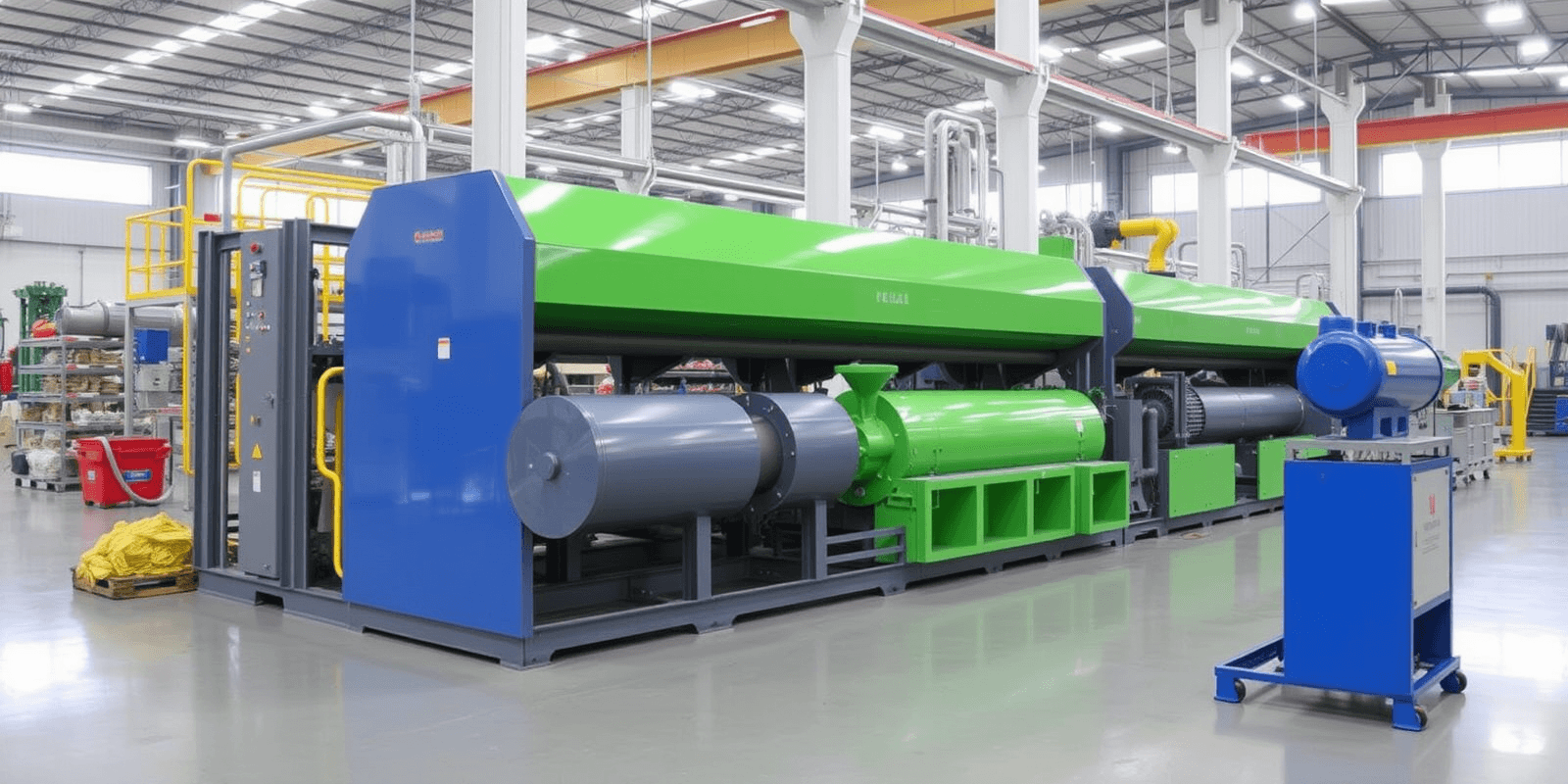Physical Address
304 North Cardinal St.
Dorchester Center, MA 02124
Physical Address
304 North Cardinal St.
Dorchester Center, MA 02124

Plastic waste is a significant environmental issue that affects our planet’s health. The increasing volume of plastic waste has led to the development of advanced recycling technologies that are revolutionizing how we manage plastic waste. This article delves into the latest innovations in plastic recycling lines, their impact on recycling plants, and the benefits they bring to environmental sustainability and efficiency in waste management.
Plastic recycling lines for recycling plants have evolved significantly over the past few years. These systems are designed to process large volumes of plastic waste efficiently and effectively. They use a combination of mechanical and chemical processes to transform plastic waste into valuable raw materials. As the demand for sustainable solutions grows, these innovative recycling lines play a crucial role in reducing plastic pollution and promoting circular economy principles.
The latest advancements in plastic recycling lines include improvements in sorting technology, enhanced separation techniques, and the integration of artificial intelligence (AI) and machine learning algorithms. These innovations enable recycling plants to process a wider range of plastics with greater precision and efficiency. For example, AI-driven sorting systems can identify and separate different types of plastics based on their chemical composition, color, and shape, ensuring higher purity levels in recycled materials.
The adoption of innovative plastic recycling lines has a profound impact on recycling plants. Firstly, these systems increase the capacity and throughput of recycling facilities, allowing them to handle larger volumes of plastic waste. Secondly, they improve the quality of recycled materials, making them more suitable for reuse in various industries. Lastly, they reduce operational costs by minimizing energy consumption and optimizing resource utilization. As a result, recycling plants can operate more sustainably and economically, contributing to a cleaner environment.
The environmental benefits of implementing innovative plastic recycling lines are substantial. By diverting plastic waste from landfills and incineration, these systems help reduce greenhouse gas emissions and conserve natural resources. Additionally, the production of recycled plastics requires less energy compared to producing virgin plastics, leading to lower carbon footprints. Furthermore, the recovery of valuable materials through recycling supports a circular economy, where resources are continuously reused and repurposed, minimizing waste and environmental degradation.
In terms of waste management efficiency, innovative plastic recycling lines offer several advantages. They streamline the entire recycling process, from collection and sorting to processing and final product manufacturing. This streamlined approach reduces processing times and increases overall productivity. Moreover, these systems enable recycling plants to adapt quickly to changing market demands and regulatory requirements, ensuring compliance and competitiveness. By enhancing efficiency, recycling plants can contribute to more sustainable waste management practices and promote a cleaner future.
Several case studies highlight the positive outcomes of adopting innovative plastic recycling lines. For instance, a recycling plant in Germany implemented an AI-driven sorting system, resulting in a 30% increase in material recovery rates and a 20% reduction in operational costs. Another example comes from a facility in the United States, which integrated advanced separation techniques, achieving a 95% purity level in recycled plastics. These success stories demonstrate the tangible benefits of investing in cutting-edge recycling technologies.
Despite the numerous advantages, challenges remain in the widespread adoption of innovative plastic recycling lines. High initial investment costs, technological barriers, and the need for skilled workforce training are some of the hurdles that must be addressed. However, ongoing research and development efforts, coupled with supportive government policies and industry collaborations, are paving the way for a brighter future. As technology continues to advance, we can expect even more efficient and effective recycling solutions to emerge, further transforming the landscape of plastic waste management.
Innovative plastic recycling lines are reshaping the recycling industry, offering transformative solutions for environmental sustainability and waste management efficiency. By embracing these advancements, recycling plants can not only address the pressing issue of plastic waste but also contribute to a more sustainable and resilient future. The journey towards a circular economy is underway, and innovative plastic recycling lines are at the forefront of this transformation.